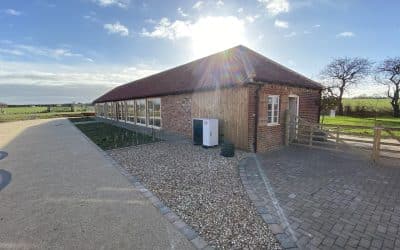If you have any non-domestic renewable heating installations, you can apply under the Commercial RHI scheme as you’d be producing renewable heat. However, before you can be accepted, you have to ensure that all your heating systems are metered. The financial incentive for eligible technologies that you’ll receive from the government will be paid over a period of two decades. You can apply for technologies installed after 15 July 2009. The payments you receive will be made on the basis of every unit of kWh heat produced using the heating system.
To make the most of the Commercial RHI scheme, we’ve discussed a few questions that commonly revolve around it.
Let’s take a look at what these are!
What Does ‘Useful Heat’ With Regards to Non-Domestic RHI Mean?
It means that the heat load (space and hot water heating) mustn’t be created artificially just for the sake of claiming RHI. Heat supplied should be economically justifiable for the heating requirement at hand. Heating that’s considered allowable is for hot water, space and process heating where heat dispensed from the eligible technology is used in fully closed rooms. That said, Ofgem has the authority to decide whether a heating technology is or isn’t eligible keeping in mind the various RHI regulations.
What Are the On-going Obligations for Commercial RHI?
In order to receive RHI approval and eligibility, you’ll have to adhere to a number of obligations put forth. For starters, you’ll be asked to regularly re-declare that you’re meeting with these obligations. The list of obligations include:
- Ensuring that your heating equipment is working efficiently while conforming to all the manufacturer’s instructions.
- Maintaining a record of all the maintenance and repair work conducted.
- Agreeing to provide any information of relevance that Ofgem might request and allowing examination of the installation upfront.
Commercial RHI If I Run a Business From Home – Domestic or Non-Domestic?
If the renewable heating system provides heating to a single residential property and is presently classified as a ‘self-contained’ unit under the local council tax banding, then it is regarded as a domestic installation. However, if you’ve adapted your home specifically for commercial reasons, it may be classed as non-domestic. For instance, a house converted to a bed and breakfast or a shop.
If renewable heating solutions are installed in one or more residential properties by landlords, it’ll still be eligible under domestic RHI. In essence, the deciding factor relies on whether you pay business rates. If you do, then it’ll be considered as commercial or non-domestic.
Can I Receive Non-Domestic RHI Payments With Funding From a Grant?
No. RHI support is extended only if the renewable heating installation hasn’t received and will not be receiving any sort of public funding. This is applicable to fundings commissioned both before and after the RHI regulations came into force. If you’ve received the grant and are considering applying for RHI payments, then you’ll have to pay back the funds forwarded to you before the regulations were imposed.
What If I Sell My Renewable Heating System?
After you sell your heating system, the new owner will receive RHI payments for the remainder of the eligibility period. As long as the new owner can prove the validity of the transfer of ownership to Ofgem while continuing to meet the eligibility criteria, there shouldn’t be any issues. Keep in mind that it’s unlawful for the new owner to blatantly receive RHI payments without presenting any proof of their ownership.
Can My Installer or Agent Apply on My Behalf?
In theory, no as you’re supposed to do it by yourself. However, that doesn’t mean you can’t seek professional help. If you are looking at getting help with your RHI application, be sure to contact us today on 01636 642790. In any case, the correct way to go about it is by applying online at the Ofgem website.
How Are Tariff Levels Set?
Tariff levels are set based on the extra costs of each heating technology over their gas and fuel-based counterparts. A 12% internal return on capital is added to this except for a solar thermal system as it offers a lower rate of return comparatively. The goal is to provide adequate financial support while trying to keep over-subsidising at bay.
You can get a free quick quote to see how much you’re likely to receive under the Commercial RHI scheme.
Additionally, get in touch with us today in case you have any RHI and renewable heating technology related queries.




